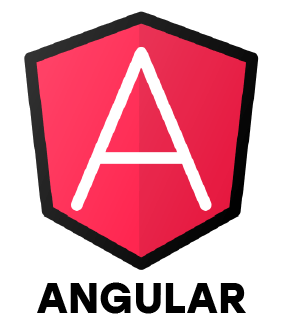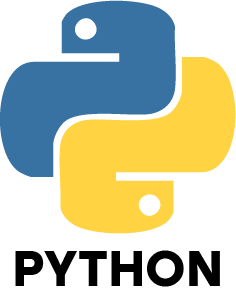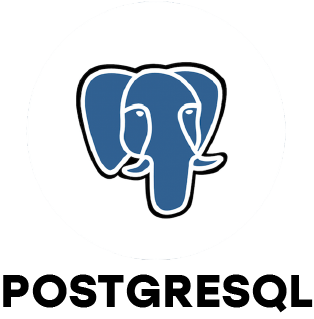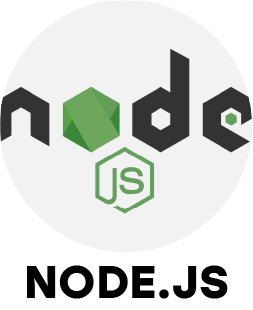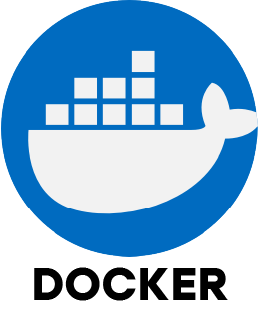A full stack developer is an engineer who can handle all the work of databases, servers, systems engineering, and clients. Depending on the project, what customers need may be a mobile stack, a Web stack, or a native application stack. In fact, “full stack” refers to the collection of a series of technologies needed to complete a project. “Stack” refers to a collection of sub-modules. These software sub-modules or components combined together to achieve the established function while without the need for other modules.Enroll Now with us ACTE Full Stack Developer Classroom & Online Training Course.
Today, the role of a Full-stack developer is one of the most sought-after job roles in leading companies, and the demand for skilled professionals is expected to grow exponentially beyond.One can choose a career as a Full-stack developer for the following reasons:
- Full-stack developers are in great demand due to their diversified coding skills
- The average salary for a Full Stack Developer Developer is $109,791 per year in the United States
- A career in full-stack development is projected to grow 34% by the year 2026
- Full-stack web development is easy to learn if you are familiar with the basics of HTML, Full Stack DeveloperScript, Node.js, etc. concepts
- Companies like Apple, JPMorgan Chase & Co., Mercedes, Catalyst Solutions, Cisco Systems Inc., etc hire Full-Stack developers
Nowadays, full-stack development is in huge demand. Companies need Full Stack Developer developers because of several reasons. Full-stack developers can work with multiple technologies, and so, they can handle more aspects of a project than an average programmer.A full-stack developer is familiar with many stacks, including the MEAN stack and the LAMP stack. Their vast knowledge of multiple areas equips them to handle the unique requirements of their projects.The future of full-stack development is attractive. It looks promising because of the steady growth in demand of these professionals. There are many reasons why the demand for full-stack developers is increasing and will keep rising in the coming years.
As per the industry stats, most hiring is happening for the below roles:
- Web developers
- Technical project leads and managers
- Entrepreneurs who want to build their applications using Full Stack Developer
- Graduates who wish to learn Full Stack Developer
YES,A Full Stack Developer Developer is the one who is capable of working on both ends of web application front-end and back-end.Companies consider Full Stack Developer developers as budget-friendly as well because instead of hiring two developers individually for front-end and back-end companies hire Full Stack Developer developers.Full-stack developers are the proverbial unicorns of the development world: fanciful and functional.If you're wondering why full-stack developers in such particular demand, it's because most developers are highly specialised. They either work in server-side programming (back-end),or client-end programming.
We are happy and proud to say that we have strong relationship with over 700+ small, mid-sized and MNCs. Many of these companies have openings for Full Stack Developer.Moreover, we have a very active placement cell that provides 100% placement assistance to our students. The cell also contributes by training students in mock interviews and discussions even after the course completion.
A Full-Stack Insurer retains the entire profit pool (which depending on usage of re-insurance may be smaller or larger), while the MGA shares the profit pool with it's risk carrier partner(s).
There are no specific prerequisites to learn Full Stack Developer. Knowledge of web-development is an added advantage but not mandatory.
NO,Full Stack Developer engineer should know at least one server-side programming languages like Full Stack Developer, Python, Ruby,. Net etc. Knowledge of various DBMS technology is another important need of Full Stack Developer developer. MySQL, MongoDB, Oracle, SQLServer are widely used for this purpose.
Our courseware is designed to give a hands-on approach to the students in Full Stack Developer. The course is made up of theoretical classes that teach the basics of each module followed by high-intensity practical sessions reflecting the current challenges and needs of the industry that will demand the student's time and commitment.
Yes,Full Stack Developer has become an essential web technology along with HTML and CSS, as most browsers implement Full Stack DeveloperScript.Furthermore, Full Stack Developerusage has now extended to mobile app development, desktop app development, and game development. All in all, it has exploded in popularity and is now a very useful skill to learn.
Some benefits are as follows:
- It is estimated that a well-versed Full Stack Developer developer can get paid an average of $109,791 per year in the United States.
- Individuals have multiple career options to choose from like, Web Developers, Computer and Mathematical occupations, etc.
- There is no need for knowledge of multiple languages, since they write the whole code in Full Stack DeveloperScript language.
- There is a higher rate of employment.
Full Stack Developeris a vital area of many IT job roles and gaining the applicable expertise and passing Full Stack Developer exams in this area will greatly enhance your employability.
Its better to select ACTE which comprises these below factors.
- Appropriate training with well Equipped facilities.
- Technical Full Stack Developer certifications
- Complete knowledge in the Full Stack Developer
- Technical theory
- Mock Interviews
Full Stack Developer Development is undoubtedly a promising career option. The field has the potential for continued growth in the years to come. Full Stack Developer Developer is just not an in-demand role across multiple organizations, it’s also a well-paid role. Understanding more technologies is certainly a sure-fire way to future-proof your career as the digital landscape evolve.For those who are looking for a competitive, as well as a lucrative job, Full Stack Developer Development is a smart and ideal career choice.
Here are a few reasons for you to pursue a career in Full Stack Developer:
- Hands-on engagement with the best-Engineering platform in human history.
- A sense of mission and higher purpose
- The emergence of agile Full Stack Developer Developers(Web Development)
- Enterprise applications are multiplatform/Web designing/Web development
- community support and training.
- Build a lucrative career.
Career Opportunities for Full Stack:
- These days, the tech industry has become obsessed with full-stack developers, with rumors of many companies only hiring only full-stack developers to fuel their projects. However, at the rate at which the technological world is expanding, it has become impossible to become a master of all trades. This has resulted in full stacks becoming multiple full stacks. Web development has its own stack, while mobile development comes with its own.
- This wasn’t always the case! When developing started becoming a passion for many developers, around the 1970s, programming and development weren’t this multi-layered, and developers could write complete programs using assembly language, which usually resulted in getting the system to give you more juice out the processor.
- However, as programs quickly evolved, clients and servers and more facets of programming were introduced things got a bit more complicated. Building programs and applications was no longer a one-language job, and required multiple languages and frameworks to help make development faster and better.
- This required more people to become specialists and start handling different aspects of development. Front-end, back-end, database, networking, virtual machines: everything had a someone who has mastered that technology. This resulted in developing becoming more complex and expensive. Having more people working on one project results in more time spent in work allocation and communication and discussions, proving costly for companies.
- Now, we see another shift happening as developers move from Java stacks to more simpler LAMP stacks and new languages are hitting the scene such as Ruby and Django, along with front end frame works that are simplifying the process of coding and rendering code. Today, it is become easier to become a full-stack developer once again.
- While they may not be experts across all stacks, they can become proficient enough to produce powerful and professional websites. Full-stack developers are back in fashion and a lot of companies are now asking for developers that can work across multiple streams, fromback end to front-end and even database and testing.
What Exactly Are Full-Stack Developers?
For every person you’d ask, a full-stack developer will mean something completely different. For some, a full-stack developer works only with mobile applications or web applications or just websites, while according to some they work with everything under the sun. They are wrong and right simultaneously.
A full-stack developer has no set definition and depending on the technology that the developer is working on, the developer’s domain changes. In the simplest terms, a full-stack developer is someone who works on technologies across multiple domains. A web developer will work across multiple technologies in website development, and similarly, a mobile developer will work across multiple technologies in mobile development.
They aren’t expected to be masters on all the technologies that they work with, but they are expected to be proficient and be able to work with that technology to create a functional product. Depending on your domain and expertise, as a full-stack developer, you should be able to build a functional product and be knowledgeable of the workings of the technology within the said domain.
Benefits:
Employability:The rate of employment for full-stack developers is currently high. With the technology boom, companies are looking for developers that can fulfill more than one role, instead of having to hire multiple developers and increasing their costs.
Seamless: "Too many cooks spoil the soup" is a saying that can best be used to describe this situation. With too many developers on a project, a difference in opinions are bound to rise and the project will be in bits and pieces with each individual only working on a part. However, with a full-stack developer, you have one person and one product.
Adaptability: As a full-stack developer, one is more prone to working with multiple apps and moving from an aspect of development to another. From front-end to back-end and back again, these developers are definitely more open to working with new technologies that may or may not be in their domain.
Effective conversations:With more people, there are more conversations and anyone who has played Chinese whispers understands that conversations are prone to be manipulated.With few developers, it is easier to stay on the same page.
While full-stack developers are currently the trend, it doesn’t mean that specialists are no longer important. And both the developers have the option to transition from one to the other, where full-stack developers can specialize in one tangent, while specialists can definitely learn to become a full-stack developer. Eduonix has a full stack web developer great course for anyone who is interested in learning about full-stacks and even breaks down each technology and segment along with detailed examples to help make it easier for developers to learn.




